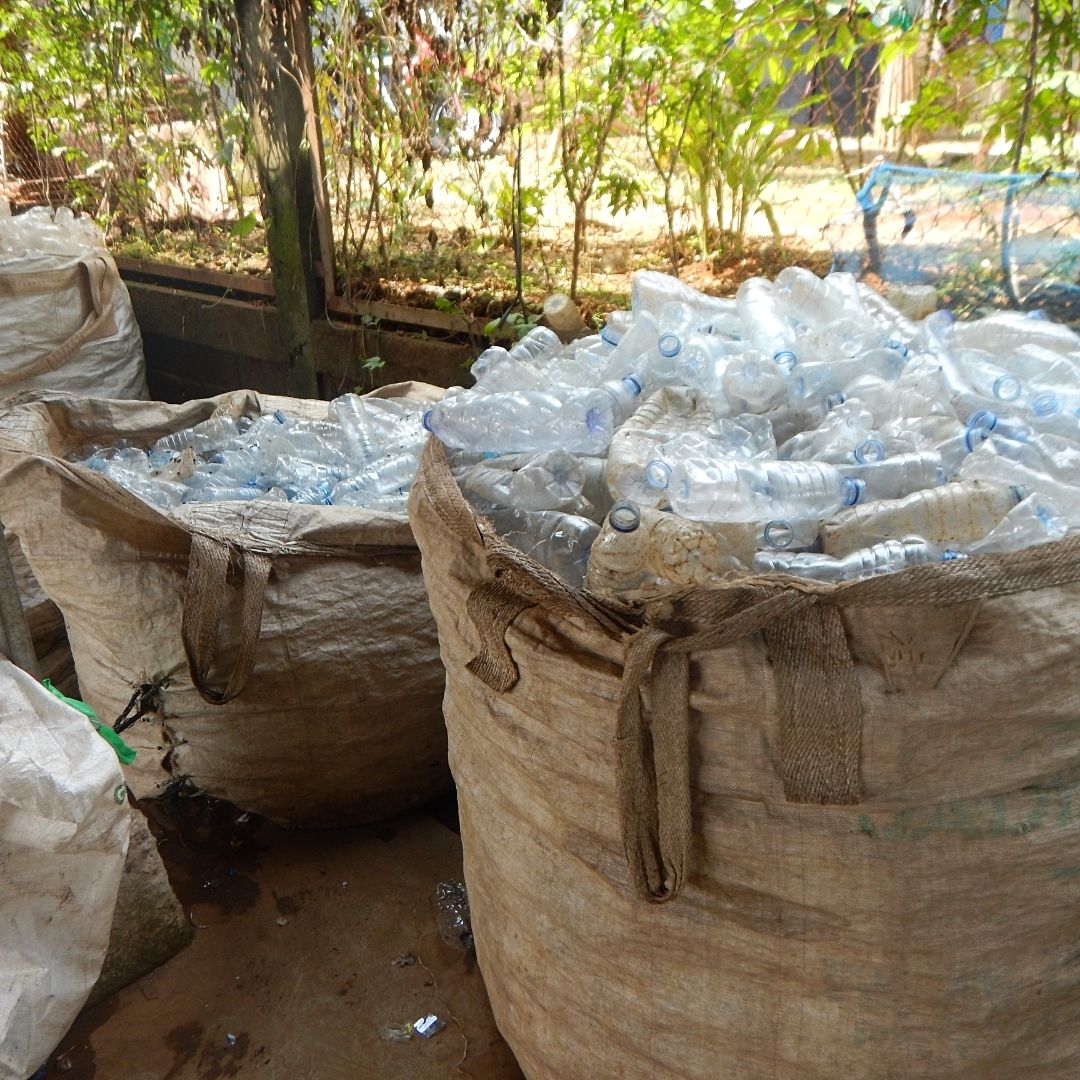Ending plastic pollution — one recycled belt at a time. Erik Sumarkho, Founder and Director of For Purpose Recycling (FPR), has created a recycled plastic belt that prevents 10kg of plastic waste from entering our oceans!
These Recycled Belts Are Good For Your Hips & Great For The Planet!
So, how does a recycled plastic belt help coastal communities in Indonesia? Well, the profits from FPR’s recycled, unisex belts are going to some really great causes. Firstly, the profits from the sale of a single FPR belt funds the collection of 10kg of ocean-bound plastic waste!
Crucially, FPR’s initiative helps to provide waste collection, recycling infrastructure, income opportunities and critical support to coastal communities in Indonesia that do not have access to basic waste services.“We build and support cost-effective waste collection points in coastal communities in Indonesia. This offers members of these communities an opportunity to sell their plastic waste and profit from the initiative", says Sumarkho. Collected plastic waste can be exchanged for cash, healthcare, school fees and other essentials.
For Purpose Recycling | Practical & Meaningful
For Purpose Recycling was created to stop plastic ocean pollution and create income opportunities for the communities that collect it. The company is a collaboration between environmental managers, recycling engineers and changemakers who want to end plastic pollution in communities that don’t have access to basic waste services.
Erik Sumarkho — an Australian sustainability expert with an Indonesian-Venezualan background — never envisaged himself creating a sustainable belt brand. But, he quickly realised that it could help to solve the problem of ocean plastic and provide access to basic waste services, whilst providing a beautiful and practical product for people to enjoy! FPR’s unisex belts are available in 4 colours: blue, orange, green and black and feature a 100% recycled polyester strap, an adjustable D-ring buckle, and a durable and minimalistic design.


Indonesia’s Plastic Pollution Problem
Every year, Erik would travel to Indonesia to surf and visit his family — but the lack of access to basic waste services and recycling was extremely evident. Plastic waste has become an eyesore and a health hazard on many of Indonesia’s once beautiful beaches.
Indonesia is actually the second-largest contributor of ocean plastic waste in the world. Currently, around 39 per cent of the total plastic waste in Indonesia is collected, and in rural areas, this figure is as low as 16 per cent.
It’s clear that if middle and low-income countries lack access to waste collection services, the masses of plastic waste is bound to end up in the ocean. This affects all of us — including the health of our precious marine life. It’s estimated that the amount of plastic flowing into our oceans could triple by 2040 to a whopping 29 million metric tonnes per year.


Solutions To Plastic Pollution
FPR’s solutions tackle the root cause of plastic pollution: lack of access to waste services.
“Many of us live outside the realm of choice. In some countries, the only access to safe drinking water is bottled and the only option for waste disposal is dumping it in nature,” says Sumarkho. But, “a solution emerges from this problem: stop making virgin plastic, rescue what's already here, and revive it into new materials,” he says.
It’s also about providing the right education to communities once these waste collection services are in place. That’s why FPR’s mission is to connect with local non-profit partners to provide environmental education and workshops to empower communities to improve their waste and recycling practices. FPR’s waste collection operations will begin in Java, the highest polluting island in Indonesia, then extend to West Papua.
We’re excited to get our hands on one of these beautiful belts! It’s wonderful to know that the profits are actively helping coastal communities in Indonesia. Changemakers, like Erik Sumarkho, are proving that one person can truly create a positive impact for people and the planet.
To read about more amazing changemakers, head to the Eco News category and check out the blogs below.
Australia’s First Community-Owned Wind Farm Turns 10
‘Re’ Is Set To Become Australia’s Forst Zero-Waste Bar
Resparkles New Plastic Pollution Campaign | “It Only Takes A Minute”

